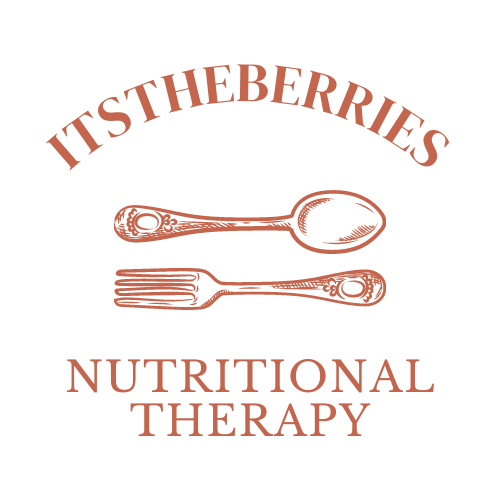Ten Reasons to work with a Registered Nutritionist
We like to take a 'proactive' approach to our health, keeping things in good shape, before a problem arises, just like having a check up at the dentist. We believe there is no bad time to check in with your life stage, diet and health status and talk to a nutritionist to see if there are any gaps in the nutrients you might be getting.
Using a registered nutritionist for nutritional therapy offers so many benefits that ensure you receive accurate, effective, and safe dietary advice. Here are our top ten reasons to consider:
Expertise and Training: Registered nutritionists have extensive education and training in nutrition science, often holding degrees and certifications. They are bound by strict criteria for continued personal development, so they stay updated with the latest research and guidelines in nutrition and health. If you're thinking of working with a nutritionist, be sure to check that the provider you'd like to work with is registered via British Association for Nutrition and Lifestyle Medicine.
Personalised Nutrition Plans: They assess individual dietary needs based on health status, lifestyle, and goals. Plans are tailored to manage specific conditions like diabetes, heart disease, and food intolerances, hormonal issues and autoimmune conditions. By working with a human (rather than a device or app), you'll get plans and suggestions that work for you, your personal preferences and how your life works day to day.
Evidence-Based Recommendations: Registered nutritionists rely on scientifically validated information. This ensures that the advice given is safe and effective, avoiding fad diets or unproven supplements.
Behavioural and Motivational Support: They provide strategies to help you make lasting changes to your diet and lifestyle. Support includes motivational interviewing and setting realistic, achievable goals and will guide you back to optimal health at a pace that works for you.
Regulation and Accountability: Registered nutritionists adhere to professional standards and ethical guidelines. They are accountable to regulatory bodies, which ensures high standards of practice. Always check if your therapist is registered on the CNHC Register.
Holistic Approach: They consider overall health, not just diet, including physical activity, mental health, and other lifestyle factors such as home and work life, previous health history and environmental factors such as pollution and vocation. This comprehensive approach supports overall well-being in a holistic and from a 'wide angle' lens.
Management of Medical Conditions: Specialised knowledge allows them to create diets that support the management of chronic diseases and medical conditions that are designed for your preferences, there is no 'one size fits all' approach to healthy eating and a person's health condition. Collaboration with other healthcare providers ensures coordinated care, so a nutritionist may refer you for acupuncture or to an osteopath and visa versa.
Nutritional Education and Counselling: They educate clients about nutrition, helping them understand the impact of their food choices. Counseling can address emotional eating, eating disorders, and other complex issues. For more complex issues, it may be appropriate to work with a specialised nutritionist, these health issues are eating disorders, cancer and kidney disease.
Safety and Risk Management: They can identify potential nutritional deficiencies or excesses and adjust the diet accordingly. They can also help prevent interactions between foods and medications. Some nutritionists will refer you to a GP if a deficiency test can be done via the GP, other times the test may be paid for privately. Either way, use the help of your nutritionist to guide to the right pathway for you.
A Personal Confidant: It's not often we have access to a healthcare professional that will listen with empathy and care, taking in all aspects of you health and life to date, it's really important you choose a partner that you feel able to open up too as so often with health, the symptoms that present can be just a small part of the story. Everything you share with a nutritionist is completely confidential. If they feel they need to refer back to your GP, they may do so with your permission and can work with your GP to get to the desired outcome.
Choosing a registered nutritionist ensures that you receive comprehensive, individualised, and scientifically sound advice to improve your health and well-being.
If you think you'd like to work with Fiona, from 'itstheberries' get in touch via email: hello@itstheberries.co.uk

